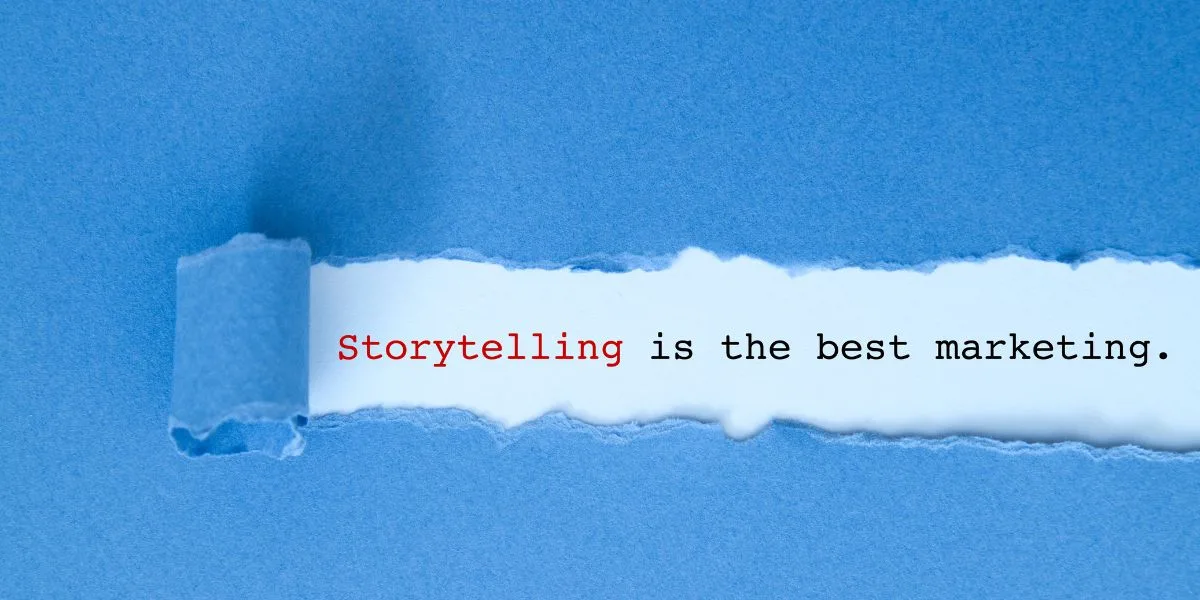Listen to this Article
In a world filled with clickbait headlines, templated ads, and dry legal jargon, making a genuine connection with potential clients is more important than ever, especially for estate planning law firms. For most people, estate planning is a deeply emotional and often uncomfortable topic. It involves discussing mortality, family relationships, and legacy. So, how do you break through hesitation and make your services feel approachable, trustworthy, and essential? The answer lies in humanizing your message—and that starts with thoughtful, story-driven estate planning advertising that speaks to your audience’s concerns and values.
The answer lies in one of the oldest communication tools known to humanity: storytelling.
Whether you’re an independent estate planning lawyer or a growing firm, using authentic narratives in your estate planning advertising can help you resonate with prospective clients on a personal level. This blog explores why storytelling works, how to apply it across your marketing channels, and what strategies can set your firm apart from the competition.
Why Storytelling Works in Estate Planning
Storytelling isn’t just for novels and movies. It’s a cornerstone of effective communication. In estate planning marketing, stories create emotional connections that cut through legal complexity and help clients understand what’s at stake. Instead of discussing technical details, leading estate planning law firms are shifting toward client-centric messaging that begins with empathy.
People remember stories far more than they remember facts. When potential clients hear about others like them—navigating grief, securing their family’s future, or struggling with the consequences of delayed planning—they’re more likely to take action. Emotional resonance not only builds trust but also makes the role of an estate planning lawyer more straightforward and more compelling.
Ultimately, storytelling transforms your message from “Here’s what we do” into “Here’s why it matters.” That shift can be the difference between being scrolled past and being contacted for a consultation.

Client-Centered Case Stories: Making the Legal Personal
Many prospective clients are intimidated by estate planning. They may assume it’s only for the wealthy, or they’re overwhelmed by the process. By sharing real-life case stories, you provide a window into how you help real people solve real problems. This makes your services more tangible and relatable.
For example, sharing how you helped a newly widowed client navigate the complex process of updating her estate after her husband’s passing demonstrates compassion, expertise, and real-life impact. In the context of an estate planning seminar, stories like this can be especially powerful—they transform abstract legal concepts into relatable, human experiences. These narratives not only highlight your ability to draft legal documents but also position you as a trusted guide offering peace of mind during emotionally challenging times.
For estate planning law firms, these stories act as proof points and trust builders. They humanize your services, making your firm feel less like a transaction and more like a partner. They also make for some of the best estate planning ads—short, moving testimonials that let your results speak louder than any ad copy.
Your Firm’s Origin Story: People Hire People
Behind every estate planning lawyer is a story worth sharing. Whether you started your firm because of a personal experience with estate issues or because you saw a need in your community for better legacy planning, your journey matters. Sharing it allows potential clients to see the person behind the title, and that makes all the difference.
Your origin story can highlight the values that guide your work, the passion that drives you, and the personal insights you bring to each case. This is especially important in a digital world where people are choosing their lawyers based on online impressions. A well-told origin story on your website or social media adds warmth and authenticity to your brand.
Incorporating your “why” into your estate planning advertising doesn’t just attract attention. It fosters emotional alignment. Clients who connect with your story are more likely to trust you, refer others to you, and remain loyal over time.

Use Relatable Stories That Mirror the Client Journey
Another powerful storytelling technique in marketing for estate planning attorneys is mirroring the client’s journey. Most people won’t relate to legal codes, but they will absolutely relate to family tension, a health scare, or a new baby prompting thoughts of the future. Stories based on these milestones help prospects visualize their own need for estate planning.
Imagine reading a post titled, “How Becoming a First-Time Parent Made Me Realize I Needed a Will.” It’s not a legal article, it’s a relatable moment. It just might be the nudge that someone needs to take the next step. These stories educate without overwhelming, offering reassurance instead of pressure.
Whether you use blog posts, social media, or email marketing, tapping into these familiar life events makes your firm feel accessible and in tune with what real people are going through. For estate planning law firms, it’s a way to build relevance, and that leads to results.
Integrate Storytelling Across All Marketing Channels
Great stories don’t belong in just one corner of your website. They should live everywhere your brand communicates. For estate planning law firms, storytelling should be a consistent thread woven through every touchpoint, from digital to in-person. A truly effective estate planning marketing strategy integrates storytelling across your website, email marketing, social media, webinars, seminars, and even PPC ads.
On your website, craft narratives that bring your homepage, attorney bios, and practice area pages to life. On social media, highlight behind-the-scenes moments, share client wins, and feature short videos of your attorneys explaining legal concepts in plain language. In email marketing, lead with real-world scenarios that evoke empathy and close with a call to action that invites trust.
Live and virtual events like webinars and seminars are ideal for sharing impactful client stories that build credibility and human connection. These stories help attendees envision the value of working with your estate planning lawyer team before they even schedule a meeting.
Even your estate planning advertising, including PPC ads, can benefit from a narrative approach. Start with a relatable hook—like the anxiety of a family without a will—present the conflict, and offer your services as the solution. These narrative-driven micro-ads resonate far better than generic “Call Now” messages because they address emotional pain points.
In short, storytelling should never be a one-off tactic. It should be an intentional, long-term part of your digital marketing and traditional strategy, one that positions your firm as compassionate, knowledgeable, and truly client-focused.
Need Help Creating Story-Driven Marketing Content?
Book your free consultation and we’ll help you develop messaging for your webinars, seminars, and PPC ads that connects, converts, and complies.
Tips for Ethical and Effective Storytelling
Now that you’re ready to embrace storytelling, it’s important to do it the right way. First, always prioritize truth and transparency. Never fabricate client experiences and always obtain written permission before sharing identifiable information. Ethical storytelling protects your clients and your reputation.
Second, strike the right emotional tone. You want your stories to resonate, not manipulate. Fear-based marketing can backfire, especially in an area as sensitive as estate planning. Instead, use storytelling to guide clients from confusion to clarity, from anxiety to relief.
Finally, balance your stories with action steps. The goal isn’t just to entertain. It’s to inspire your audience to take the next step, whether that’s scheduling a call, attending a webinar, or reading more about your services.
With these principles in place, your estate planning advertising can be not only more engaging but also more effective and ethical.
Final Thoughts: Stories Build Trust, And Trust Builds Business
In a service-driven field like estate planning, clients are looking for more than credentials—they’re looking for connection. They want confidence that they’re making the right decision about something deeply personal. Storytelling provides that confidence by helping you build emotional rapport, demonstrate your values, and show your problem-solving skills, often before a prospect ever picks up the phone.
For estate planning law firms, storytelling is more than a branding tool; it’s a lead generation powerhouse. Compelling stories turn passive viewers into engaged prospects by tapping into their fears, hopes, and questions. And when those stories are embedded in your digital marketing, estate planning advertising, webinars, seminars, and PPC ads, they create a consistent and persuasive experience across every channel.
As the legal industry continues to evolve, the firms that stand out won’t just be the ones with the biggest budgets. They’ll be the ones who tell the best stories. Stories that reflect real client concerns, offer genuine hope, and highlight the irreplaceable role of a skilled estate planning lawyer.
If you’re ready to build a stronger emotional connection with your audience and convert more interest into qualified leads, now is the time to make storytelling the foundation of your marketing for estate planning attorney strategy.










